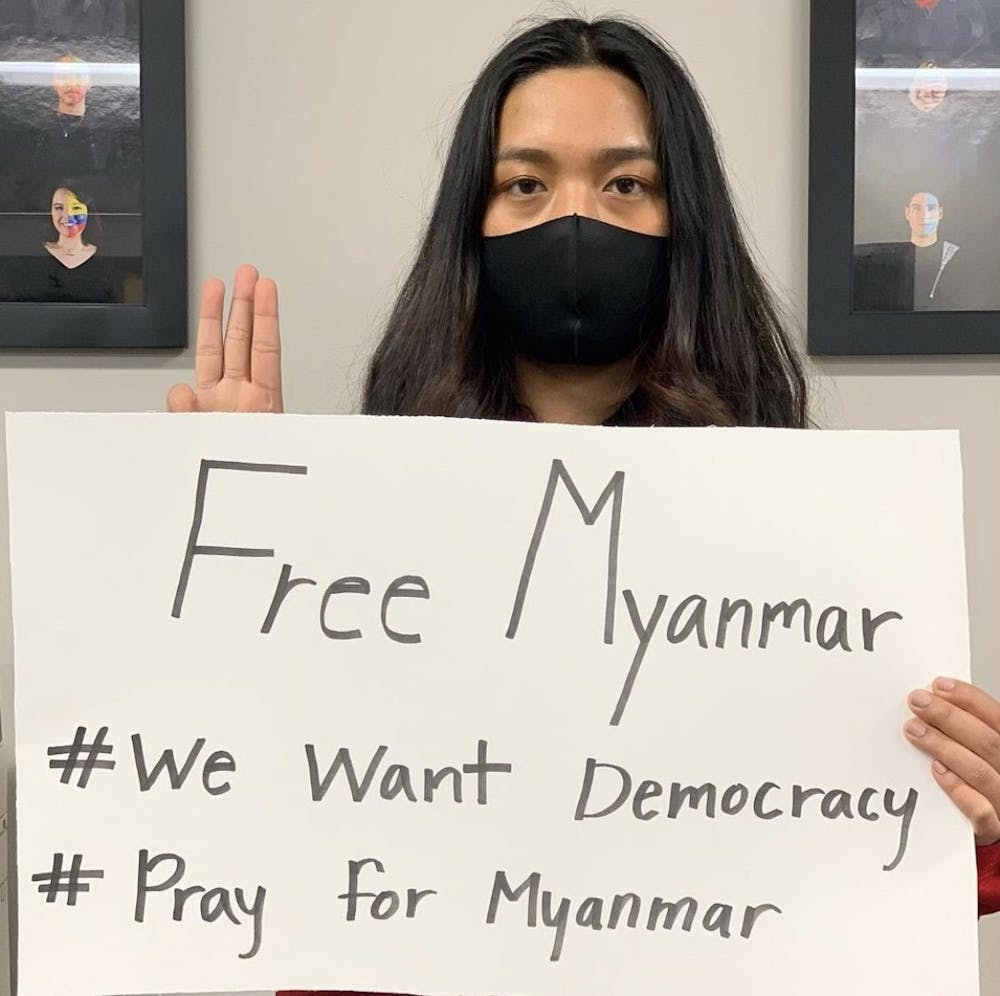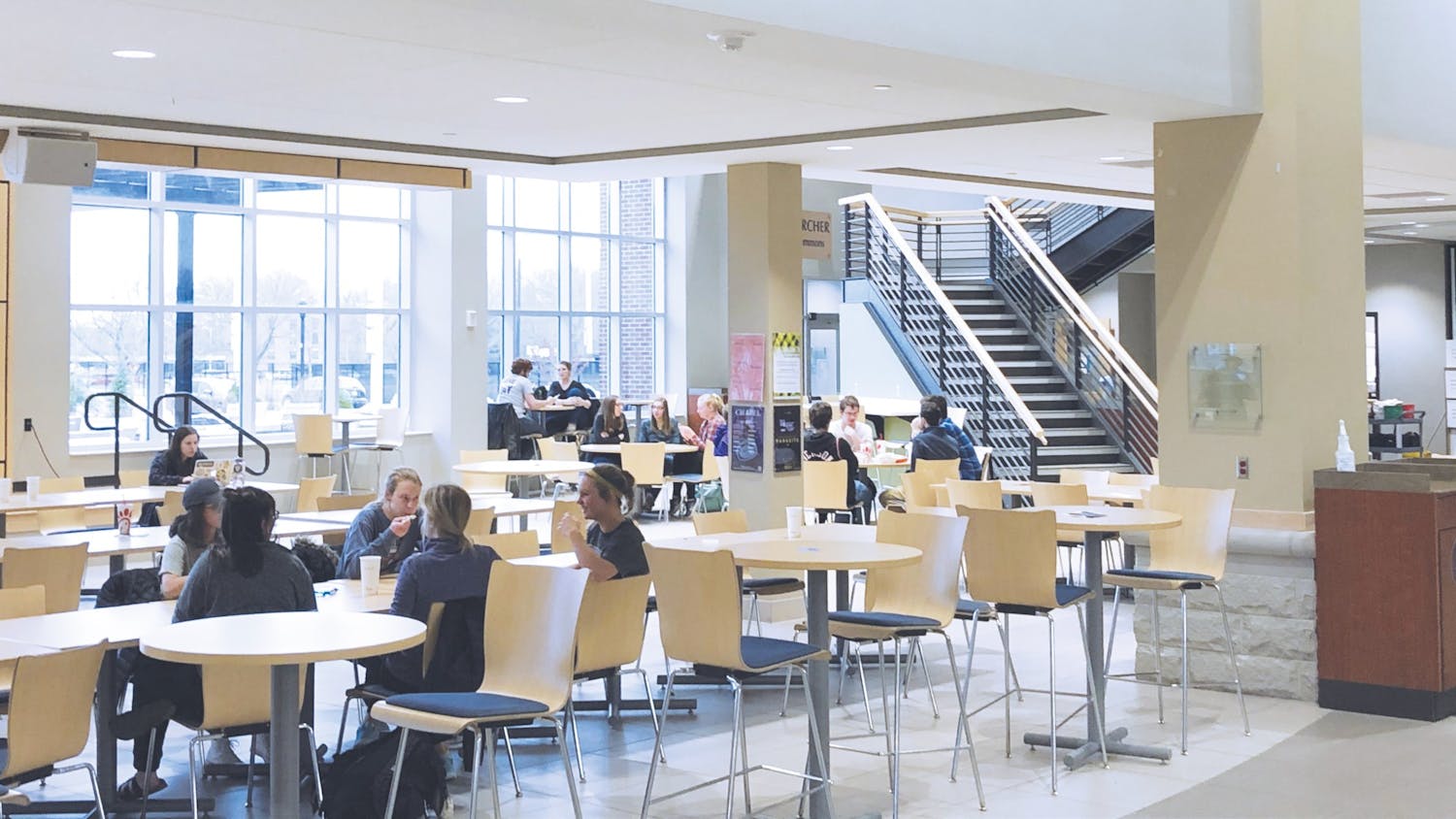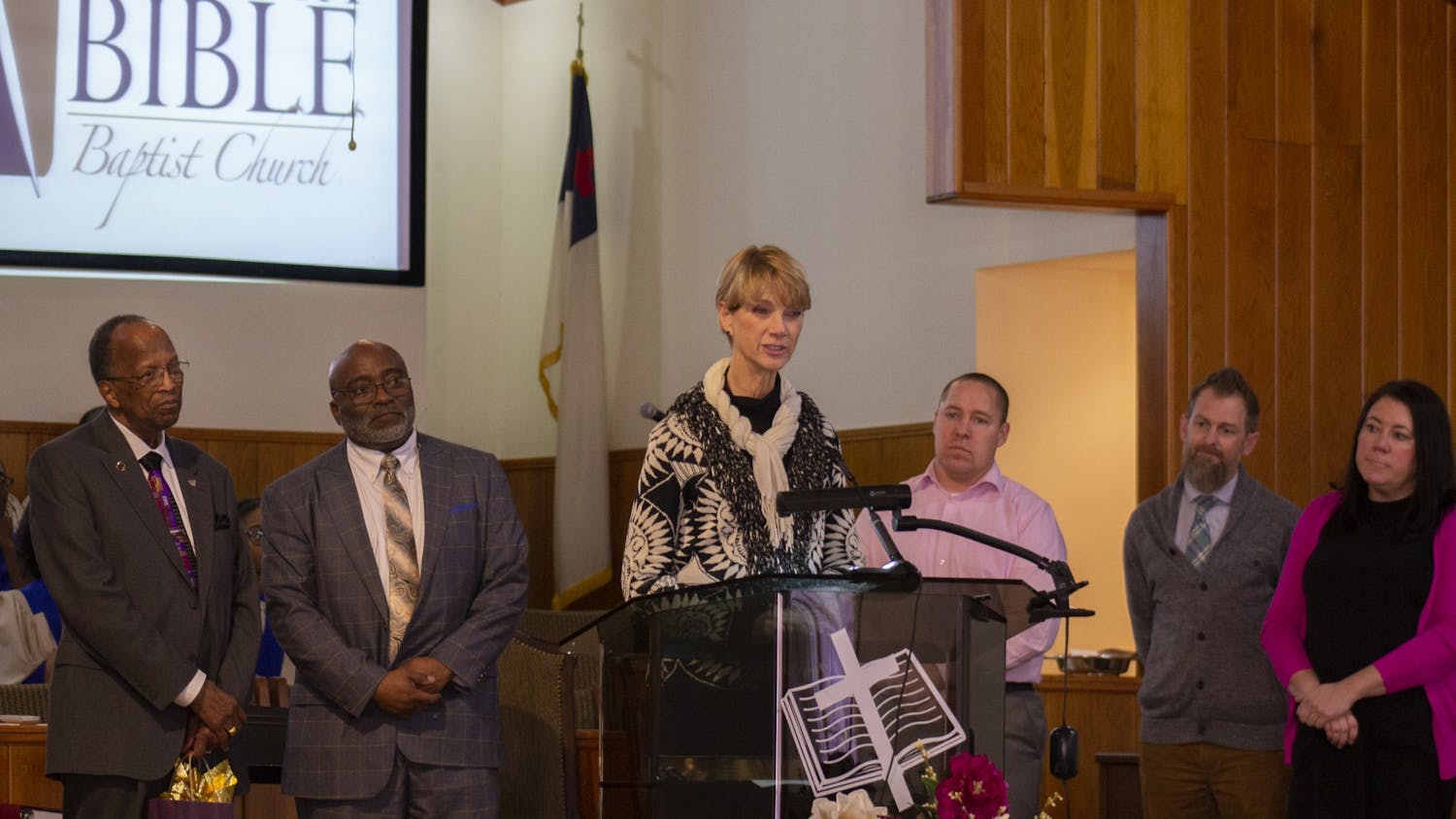The world news often seems distant, but for juniors Nay Mi Chele-Rhengboi and Paw Khei of Taylor University, the world news includes a threat to the place they call home.
For these students, the reality of the coup in Myanmar is a constantly consuming thought, as the history of their country is being dangerously altered.
“My heart just feels restless,” Khei said, “I don’t know what it looks like to help them from another country.”
As the political strides toward democracy seem to be completely eliminated, Myanmar, formerly known as Burma, is in political chaos. The military is arresting everyone in their paths, shutting down the internet and releasing violent prisoners on protesters.
The National League of Democracy (NLD) was the hope of Myanmar as they finally allowed the people to have a voice.
“Right now the military robbed us of our freedom when we were almost there. We saw the light at the end of the tunnel and the military blocked that light,” Khei said.
Khei emphasized the importance of the NLD, Democracy is not an expectation for those in Myanmar in the same way it is in the United States. However, the moves made by the NLD provided hope that democracy could be secured by the Burmese too, Khei said.
Over the past several decades, the NLD has made many political movements, resulting in the implementation of a democratic system in 2011. Aung San Suu Kyi, the face of democracy in Myanmar, received the Nobel Peace Prize in 1991 while under house arrest for her promotion of democratic values. Now, she is once again detained.
Rhengboi first discovered news of the coup and the arrest of Aung San Suu Kyi via Instagram. Immediately, she felt a call to respond.
“I knew that I needed to do something, but I was caught up in the moment where I felt like I couldn’t do anything,” Rhengboi said.
Filled with a sense of responsibility, Rhengboi called her fellow cabinet members on the Asian Society for Intercultural Awareness (ASIA) to action alongside her utilizing social media.
“The country is in a bad shape in that the military is using every power they have to stop and silence the people,” Rhengboi said.
Though her people may be silenced, she is choosing to use her voice.
Along with a few others, Rhengboi posted a photo of herself with a poster that said “Free Myanmar,” looking to cultivate awareness.
Rhengboi said students can make an impact through social media. The best way to join her and her fellow Burmese students and her is through making the issues known, as well as listening and understanding.
Khei and Rhengboi believe the best way to personally reach out to Burmese students is through listening to them speak about their country. In providing a listening ear, pay attention to the ways that coup is personally impacting these students and their families, they said.
Khei said knowing the facts of the situation had value and influence, but what meant the most was empathetic awareness.
As the struggles in Myanmar continue, Rhengboi invited students to: “Notice it. Share it. Post about it.” There are many things going on in the world, but noticing the stories of the students around you makes a difference, Rhengboi said.
Despite the world feeling big, intentional understanding simplifies complexity. For any student who feels the weight of their country, be a listening ear. Seek to empathize. Use your platform to make others aware. Be there and show you care.





